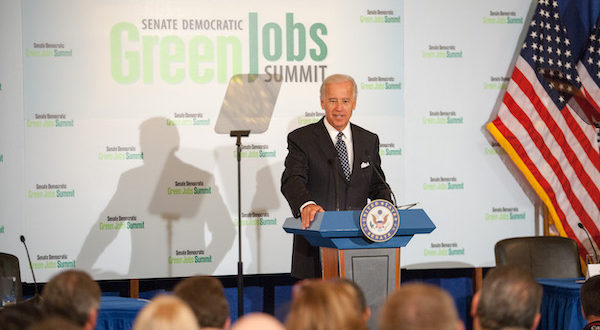The green revolution is influencing various industries and promoting sustainable lifestyles. Many people measure their carbon footprints and adopt emission-reduction techniques to fight climate change, and environmental engineers are following consumer trends by developing eco-friendly technologies.
Government officials recognize the importance of conservation services and team up with professionals to develop solutions. One of the less-discussed benefits of green policies is their impact on humanity. There are various ways sustainability regulations save lives.
Why Do We Need Green Policies?
Government officials are establishing regulations to shrink the global carbon footprint. Greenhouse gas emissions derive from the transportation sector, manufacturing practices, buildings and more.
Nearly 64% of the global energy supply comes from fossil fuels. Using them to heat homes, fuel cars or products contributes to greenhouse gas emissions. This traps excess heat in the atmosphere and raises Earth’s temperature.
Rising temperatures create a ripple effect of degradation throughout the ecosystem. The government failed to regulate large corporations’ emission production in the past. Officials also left residential energy use unregulated.
Ecologists informed the government of climate change’s longstanding effects to influence effective policymaking.
What Is the New Green Deal?

One official is creating a New Green Deal to minimize environmental, social and human health damage. This is a government policy working toward sustainable infrastructure. It targets the top pollution-producing sectors and influences the clean energy transition. Most global corporations do business with big oil companies to support their energy demands at reasonable costs.
Alexandria Ocasio-Cortez (D-NY) identifies the key benefits of minimizing fossil fuel demands. She notes that the deal will reduce racial injustice by increasing everyone’s access to renewables and good air quality. The New Green Deal may also improve economic equality and other social challenges.
1. Cutting Greenhouse Gas Emissions
One of the ways green policies benefit society is by minimizing local pollution. Researchers have noticed more asthma diagnoses in regions with high greenhouse gas emissions. When individuals inhale emissions, their risk for lung cancer, COPD and other respiratory illnesses also increases. Green policies may minimize emissions and improve humanity’s lung health. They also benefit individuals economically by lowering transportation costs.
Post-industrial nations like the United States are shrinking their carbon footprints by adopting electric transportation systems. Powering buses and vehicles with renewable energy is more affordable than conventional fuel sources. Solar is currently the least expensive energy source on the market. Producing an electric transportation system also supports the global transition towards clean energy.
2. Adopting 100% Clean Energy
Governments worldwide are also promoting the clean energy transition by creating tax incentives. People who purchase renewable systems like wind turbines, solar panels or biomass heaters are eligible for tax credits. The government is extending most credits through 2023 and increasing individuals’ access to sustainable power sources.
People can also save money over time by using renewable energy instead of fossil fuels.
3. Creating Green Jobs
The transition toward sustainable transportation, manufacturing and energy production practices can help the economy bounce back from the pandemic. COVID-19 put many small companies out of business.
The green market is also putting coal miners out of work. Mining jobs are becoming scarcer, which raises unemployment rates. There will be an increased demand for engineers, installation professionals, maintenance workers and other employees as nations expand their renewable energy production projects. Various policies are currently working to protect humanity, and others remain on the horizon.
Future Policies to Look Out For
The House of Representatives passed America’s Build Back Better act in November. The policy will improve the sustainability of America’s infrastructure and support renewable energy projects. Individuals predict it will pass the Senate this year, and society may begin accessing the benefits of a green nation.



